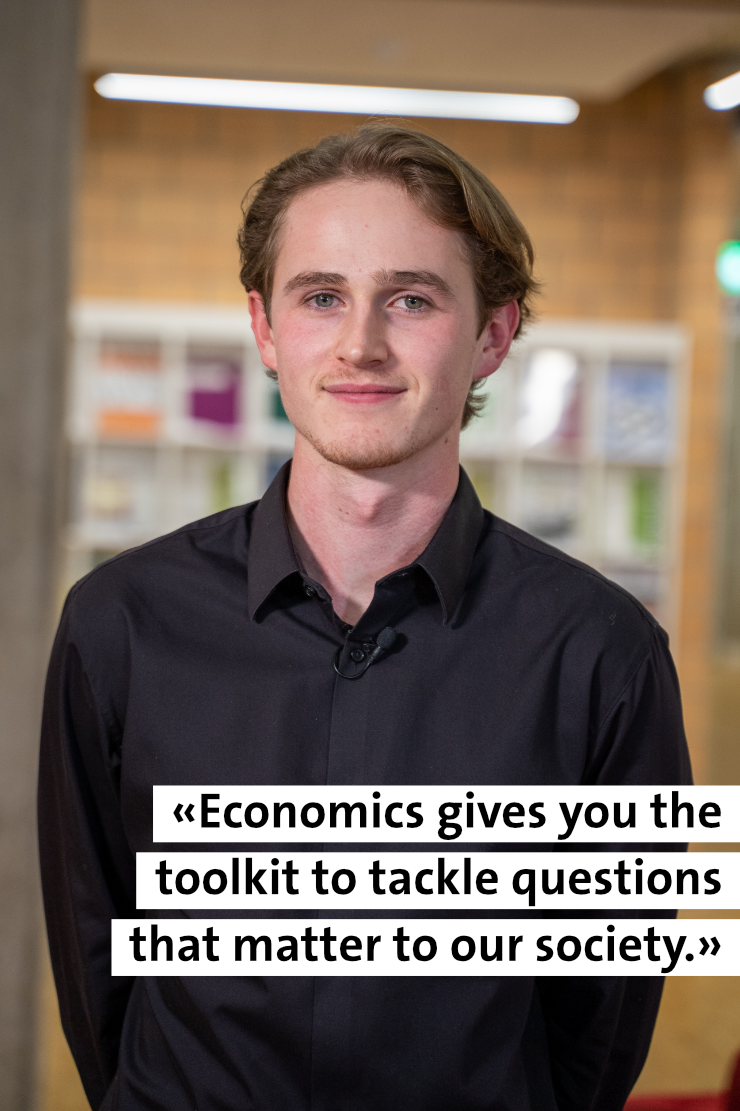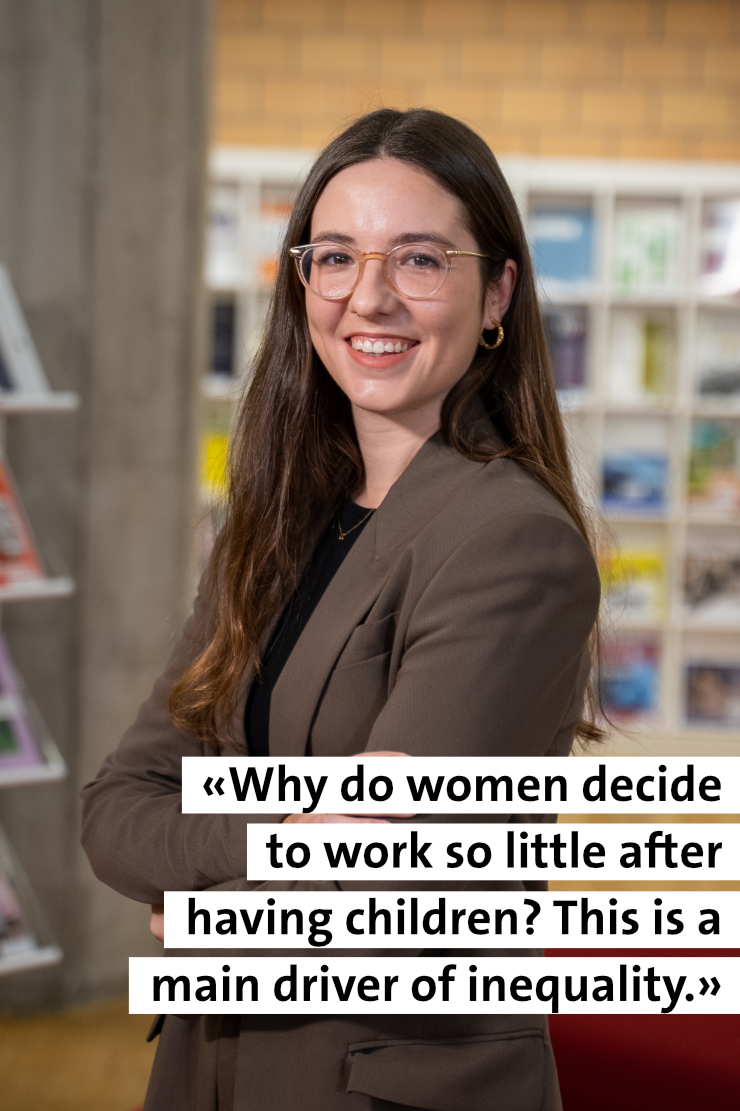Navigation auf uzh.ch
Navigation auf uzh.ch
In the fifth episode of "Studi meets…" Bachelor’s student Cornelius Hummel talks to Assistant Professor Ana Costa-Ramón about the impact of economics, gender equality and goals in life. Read a summary of their conversation below or watch the full video.
Cornelius: You are a professor of gender and health economics, right? Regarding your research field, what surprised you the most when you came to Switzerland?
Ana: When I came here, I was very surprised at how many women work part-time. Some economists have calculated the so-called child penalty, which measures how much the earnings of women go down relative to those of men after having a child. For Denmark, they calculated that the child penalty was around 20 to 25 percent. For Switzerland, recent estimates show that it‘s around 70 percent. And I thought, okay, I have to understand why women decide to work so little after having children and moved my research agenda to this. This is a main driver of gender inequality.
Cornelius: Gender equality and the gender wage gap are big discussion topics. Swiss citizens for example voted recently on the reform of the pension system. I think it‘s interesting that we talk more about the outcome – that women earn less – and not as much about why this is the case. I think it would be a great idea to have similar parental leave for both women and men. How do you see it? Could this be a solution to the gender wage gap?

Ana: For sure it would help, but I think there are other things that are playing a role. Next to institutions, there are social norms, culture and preferences and they are all connected. So, one single policy can‘t solve this issue. Regarding pensions for example, in a current study I am trying to figure out if women know the consequences on their pensions and for their careers if they work less. The goal is to inform them about potential financial repercussions. But let’s also talk about your interests: What part of economics do you like best?
Cornelius: Behavioral economics fascinates me the most. In my understanding, it‘s like challenging the classical theory, the classical models we have with current research in psychology and also current developments we are observing. I also like development economics because there we can really see what impact economics can have in the real world and how research is contributing to improving people‘s lives.
Ana: Do you also find it interesting that before studying economics, no one knows what it really is? (laughs)
Cornelius: Yes, that is true! It was the same for me. I am a student representative of the Faculty and we are trying to improve the study program from year to year. For example, by doing a first year introductory course in economics. Not microeconomics and macroeconomics, but more of a small course that shows all the different areas.

Ana: So you know what you can do with economics afterwards.
Cornelius: Yes, because I imagine many people who do the assessment year in business and economics do not know yet in what direction to go afterwards. After the first year, they might think, economics is too much math for me. So, we try to improve this. What do you want to pass on to your students?
Ana: Sometimes I feel like they might find it tricky to keep up with all the different papers they have to read. Therefore, I try to bring them to the frontier of knowledge and to make them able to just read a paper in general. Because I think it‘s super interesting to just go on Google Scholar and figure things out by yourself. I also try to touch on a lot of different topics, so they have an overview.
Ana picks a question
Ana: Oh, this is a good one. What is your goal in life?
Cornelius (laughs): Good question. I think as an economics student, I want to have an impact. I don‘t know exactly how I want to do it yet, but economics is a subject that gives you the toolkit to tackle questions that matter to our society and maybe create an impact through research questions. That is what I am trying to aim for. But the path is still uncertain.
Ana: It‘s always uncertain. Don‘t worry.
Cornelius: How about you?
Ana: I feel like I am on the right path, at least right now. At the moment, my goal is to try to develop my research projects and work on these topics.